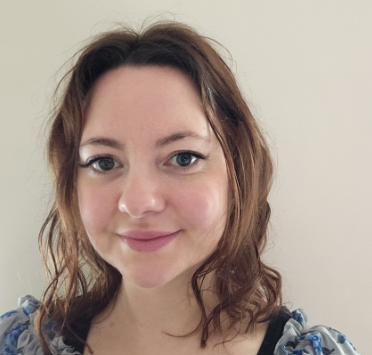20 Years of MSW – Nikki Rutter
As we celebrate 20 years of the Master of Social Work (MSW), let’s meet Nikki Rutter, Assistant Professor in Durham University’s Department of Sociology.

Please tell us about your role within Sociology/MSW.
I am an Assistant Professor in Sociology and teach on topics relating to human growth and development, applying theory to practice, and child and family social work. I hold responsibility for admissions and co-ordinate practice placements at the Undergraduate Sociology/Criminology/CHSS and first year MSW level.
What is your research specialism / areas of interest?
My research involves participatory approaches to child and family experiences, expressions, and responses to harm. I am particularly interested in how symbolic representations of ‘good mothering’ and ‘good childhoods’ create contexts conducive to family harm, and how this can be challenged.
Most of my recent work has explored research and practice which aims to conceptualise and frame ‘child-to-parent violence’, and where this is positioned on existing frameworks of child development, domestic abuse, and child safeguarding.
How did you become involved with MSW?
I’m an alumni! I completed the MSW in 2019 alongside Catrin Noone. I then worked in the voluntary sector, supporting families with children with disabilities alongside completing my PhD, where two of my supervisors were Professors within the MSW.
I was initially asked to guest lecture on our Social Work in Context module, as a radical social worker engaging in what could probably considered ‘critical’ views of attachment theory. After two years of guest lecturing on the MSW and acting as a teaching assistant within the department, I became a social work teaching fellow in 2021, and joined the team permanently as an Assistant Professor in 2022, once my PhD was completed.
Why are you so passionate about Social Work and the work your department does?
I live and breathe social work. I don’t see ‘social worker’ as a role, but an identity. Completing the MSW was fundamental in changing the way I see the world; I can’t imagine doing any other job now. The MSW team absolutely embodies and models great social work practice, and the department has given me the opportunity to convene frontline placement modules across all our degree programmes. For me, this means I’m able to support students apply their classroom learning to real-world settings; not only helping them to develop their skills but make a difference to people in the real-world and support our placement partners to continue their fantastic frontline work!
How does your work impact communities / the world around you?
Most of the placement partners I work with are in the voluntary and community sector, supporting the most underserved and oppressed members of society. They cannot run without volunteers, including students on placement. In the past 12 months our MSW students have collectively engaged in the equivalent of 7.5 years of full-time work for our placement partners!!
More broadly, my work on family violence has had an impact on some organisational response to child-instigated harm, and I’ve been able to inform teachers, youth workers, and social workers on how to improve responses to children’s disclosures of domestic abuse throughout the Northeast of England.
What’s been your proudest moment working on the MSW?
Graduation day! Seeing my first cohort of students who I had taught over their two years on the programme was very special. We have such small cohorts we get to know our students incredibly well and seeing how their confidence and competence as social work professionals grows before they head off to their new careers is a wonderful feeling.
What would you say to something thinking about working in Social Work?
Come and speak to me! I can’t emphasise any more what a wonderful, life-enhancing experience I had on the MSW, and we work hard to ensure all of our students feel like individuals who matter, and we care about their journeys. Do consider the MSW if you are interested in social work!
How has your subject changed in the last 20 years? Or have the key fundamentals stayed the same?
Social work is always changing. Whilst the core principles of social justice, emancipation, and anti-oppressive approaches to working with individuals and families have remained somewhat steadfast; the way in which we understand these ideas has changed radically. We’ve been incredibly lucky to have many of the individuals who have helped shift this understanding, such as Professor Sarah Banks, work with us on the MSW and hope to continue to be world leading in terms of social work research and practice (as described by secretary-general of the International Federation of Social Workers, Rory Truell) for many more years.
Find out more
- Nikki Rutter is an Associate Professor in the Department of Sociology. Nikki teaches in the Master of Social Work. If you would like to find out more about Nikki, visit her profile.
- If you’d like to share your story or insights into your work, visit our Submit a blog or vlog page to learn more.
